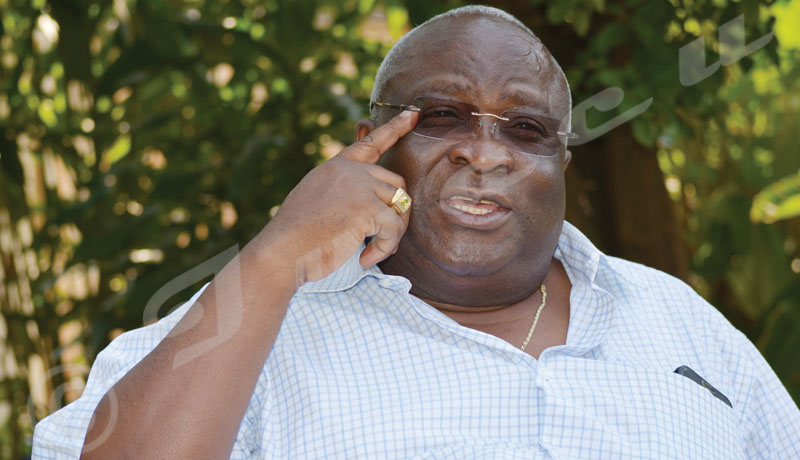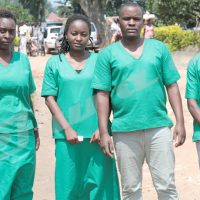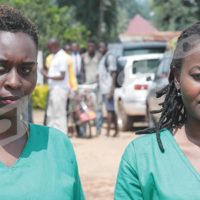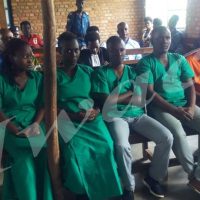In an interview with Iwacu, the former Burundi President Domitien Ndayizeye expresses himself on the issues of the moment in the country.
The parliament recently passed a bill which grants many advantages to the former Heads of state. What’s your reaction to that?
 Compared to the existing law, this law brings about a change on two major points: the distinction it establishes between former Heads of state elected by universal suffrage and those who have become presidents either by coup or consensus. As far as I am concerned, a former Head of state should not be judged on how he came to power but rather on the record of his achievements. A Head of state can win elections with fabulous scores but justify a largely poor record after five or even ten years in power.
Compared to the existing law, this law brings about a change on two major points: the distinction it establishes between former Heads of state elected by universal suffrage and those who have become presidents either by coup or consensus. As far as I am concerned, a former Head of state should not be judged on how he came to power but rather on the record of his achievements. A Head of state can win elections with fabulous scores but justify a largely poor record after five or even ten years in power.
Furthermore, insisting on the election of a president by direct universal suffrage is to take the situation from the wrong end. In the United States of America, the next President of the Republic is elected by indirect universal suffrage (By an Electoral College) and here we are talking about the greatest democratic country in the world! The other facet of the bill concerns the end of the term of senator for life for former Heads of state not elected by universal suffrage. In my opinion, I have always considered that the role of a former president is not to go to adopt laws but to perform advisory missions with legal or natural persons, in Burundi or abroad, who may want to take advantage of his experience as a former leader of a country. As for the financial aspects of this law, too much is said …….
Some denounce a real hold-up of the public treasury. What’s your opinion?
I absolutely agree with that. In the old law which was voted during my presidency, the one-off allocation of one billion Burundian francs to a former president did not exist. And with the country’s financial situation which is not good, such emoluments with regard to a former head of state are not reasonable.
To put it bluntly, given the current country’s financial situation, the president could do without these staggering sums and this could not prevent him from living comfortably after leaving office.
The relations between Burundi and Rwanda have been strained for a while. What’s your comment on that?
The current tension between Burundi and Rwanda stems from the consequences of the 2015 crisis. What is embarrassing is the way the current leaders manage this dissension with our neighboring country. This is shown by the recurrent demonstrations of youths of the CNDD-FDD ruling party on streets chanting anti-Rwanda slogans or the show of strength by these same young people and other militants of the ruling party in front of the Burundi-Rwanda border. This unrest does not honor our country at all. It is rather the reflection of a crisis. The best solution for this type of crisis between two countries which also share common borders is dialogue.
There is nothing, for instance, that could prevent the foreign ministers of the two states from communicating. At the time when I was a president, it was enough for me to initiate a conversation with Rwandan authorities on telephone to settle a certain number of major or minor disputes with our neighbor. This is why many disputes between our two countries did not need to be brought to the attention of the public during my presidency. In addition, as this conflict starts from internal problems in Burundi, our political leaders should work to resolve them before engaging in discussions with Rwanda. On this, I think of thousands of Burundians who found refuge in Rwanda following the 2015 crisis.
You were one of the leaders of SAHWANYA-FRODEBU party before the advent of democracy in Burundi. What do you think about the current state of democracy in the country?
In 1993, the first democratic elections took place but the context of the time was dominated by ethnic issues in all aspects of the country’s life. Twenty-six years later, the situation has changed. The notion of ‘good governance’ has taken precedence over ethnicity which is no longer the engine of political life. Burundians as a whole aspire to good governance in the political, economic and social areas.
Unsurprisingly, the attempts to give the 2015 crisis an ethnic orientation by the current regime could not have any effect on the population. Given this, we can be pleased that things have changed.
As a founding member of CNARED, what explains the setback of this opposition platform?
The Burundian government has done everything to prevent negotiations with the platform from being successful. But on another side, one of the main demands of CNARED was to contest the third term that the current president had decided to run for. The recent announcement of the departure of President Pierre Nkurunziza may be the result of the opposition against the third term. The objective of the platform was also to establish a true democratic culture particularly based on the recognition of a diversity of opinions within the same political trend. It is not the ruling party that would say the opposite, given the divisions observed in recent years within the CNDD-FDD party. Therefore, CNARED has been useful and can still play a role, notably in the consolidation of the Arusha peace agreements.
In three months, elections will be held. What’s your analysis of the pre-electoral atmosphere?
Uncertainty hangs over people especially since the country plunged into a political crisis in 2015, which fractured the society. On the one hand, there is a fringe of the population that supports the power in place and a group of people close to the ideas of the opposition on the either hand….
The opposition denounces the rise of political intolerance in the run-up to the elections? What do you say about that?
The multiplication of acts of political intolerance is an undeniable reality. The political vigor of CNL party makes it a target of the ruling party in terms of aggression against the opposition. The power in place visibly has difficulty grasping that the Burundian people are tired of oppressive powers and aspire to a recasting of political practices which must be based on the safeguarding of peace and security, respect for human rights, the fight against poverty, corruption, etc. It is also my advice to young people who plan to run the country someday.
Do you think about returning to power?
(With laughter) Running for president is really the least of my concerns. I will not be the candidate, neither of RANAC, nor of CNARED which never mandated me for that. This is what I also clarified to a journalist from an online media that spread the word about my possible presidential candidacy on behalf of CNARED. I feel old now to run the country at my age. I should rather think of departing this life (Laughter).
Box
What the former president thinks about the sentencing of the four Iwacu journalists.
There is nothing that justifies their detention. They were simply doing their job: verifying and investigating information on reported armed clashes in Musigati (in Bubanza western province). The journalist’s task is to give to the public both alarming and exciting news. S/he does so in strict respect of the code of ethics which governs his/her profession.
In my opinion, the four journalists of Iwacu newspaper are victims of a gross injustice! Condemning them essentially on the basis of their presence on the scene in Musigati is pure fantasy on the part of the justice which should rather provide more elaborate arguments justifying the imprisonment of these brave men and women. In addition, with these arrests, which journalist will henceforth dare dealing with sensitive topics?
To these four media professionals, I wish them to be courageous. I know how frustrating it is to languish in prison when you are innocent. I myself experienced such a situation. I hope that real justice will be done to them one day.
Interview by Alphonse Yikeze translated into English by
Pierre Emmanuel Ngendakumana


















 IWACU Open Data
IWACU Open Data

